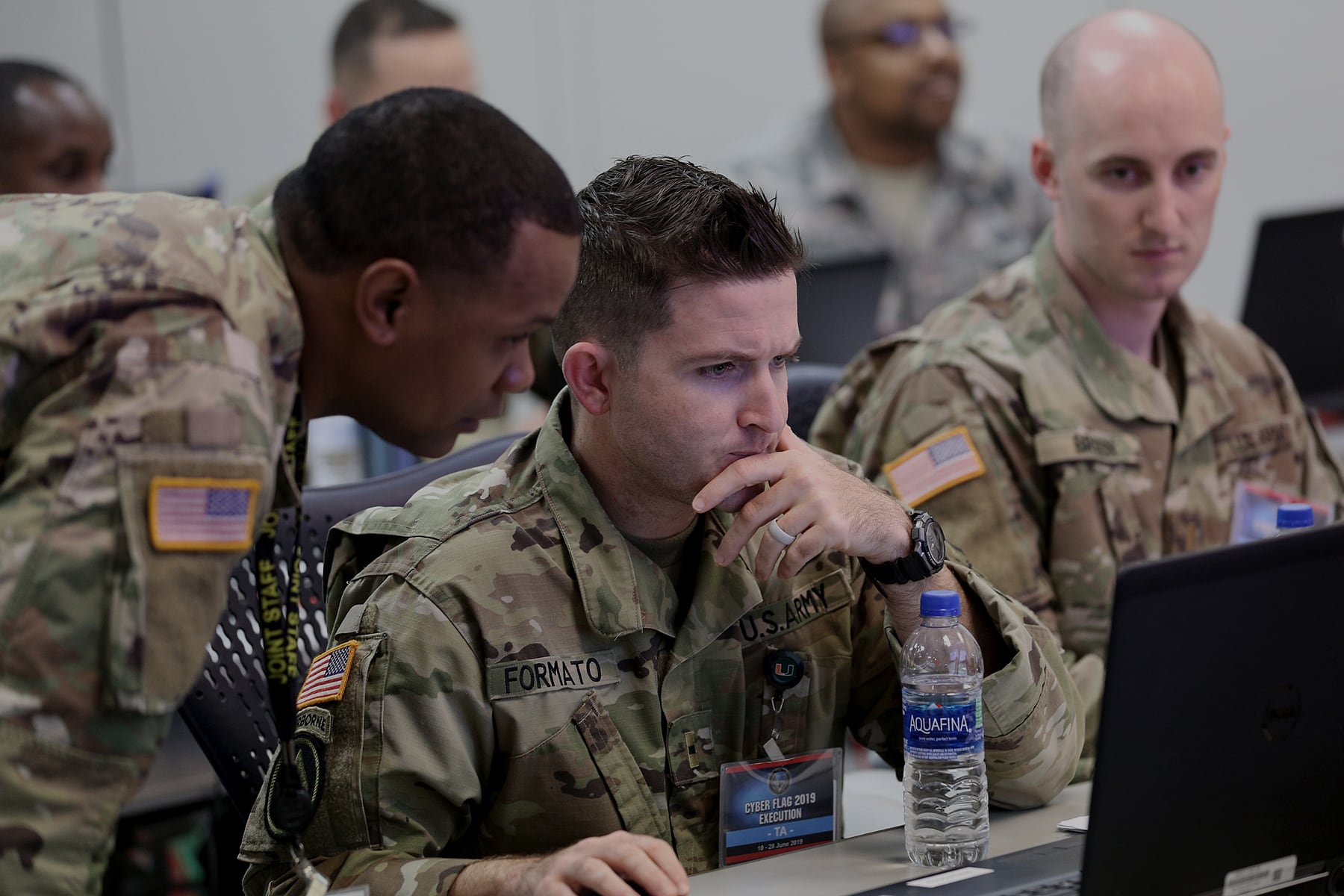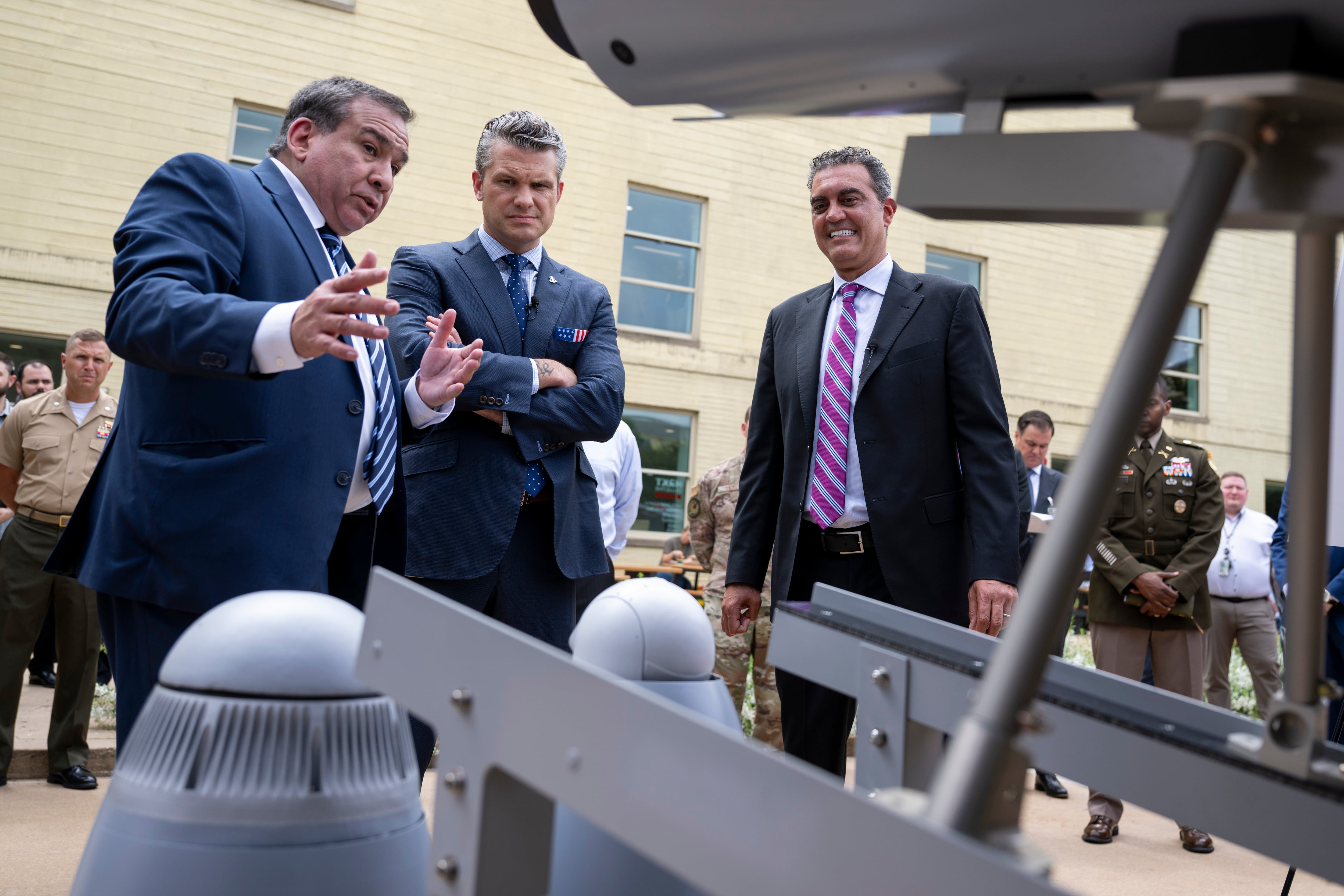WASHINGTON — U.S. Cyber Command is shifting the majority of its special task force aimed at targeting the Islamic State group to focus more on nation-state actors, particularly in the Indo-Pacific region, which the command and the Department of Defense are prioritizing.
Joint Task Force-Ares was created in 2016 to combat the militant organization online as a compliment to the global coalition fighting against the group’s grip on power in Iraq and Syria. The task force has since undergone several changes. The Army’s cyber component was originally tasked to lead the joint cyber effort, but in 2018, responsibility shifted to Marine Corps Forces Cyberspace Command, which allowed the team to focus not just on the Islamic State group, but more broadly on counterterrorism efforts globally.
“Counterterrorism operations in cyberspace are continuous, helping to protect the force and prosecute targets in Afghanistan and other regions on behalf of USCENTCOM [Central Command] and USSOCOM [Special Operations Command],” Gen. Paul Nakasone, commander of Cyber Command, said in written testimony to Congress in March. “We are also shifting JTF-Ares’ focus (though not all of its missions) from counterterrorism toward heightened support to great power competition, particularly in USINDOPACOM’s [Indo-Pacific Command’s] area of responsibility.”
Broadly speaking, Cyber Command does not plan to change command-and-control relationships or organizational cyber mission force elements as Joint Task Force-Ares transitions to focus more on nation-state actors, according to a command spokesperson.
Joint Task Force-Ares’ flexible capabilities allowed its members to integrate with and support operations in Central Command, the spokesperson said. As the task force shifts responsibility, it will seek to continue coordination with INDOPACOM, 10th Fleet/Fleet Cyber Command and MARFORCYBER. Fleet Cyber Command is responsible for cyber operations in the Indo-Pacific region under what is known as the Joint Force Headquarters-Cyber construct, which provides planning, targeting, intelligence and cyber capabilities to assigned combatant commands.
Making moves
The move to shift teams’ focus marks a reflection that Cyber Command has to adapt to a changing world in which so-called great powers are a greater priority than terrorist organizations and that the DoD has identified the Indo-Pacific region as a top priority given it considers China the “pacing threat.”
“The CMF’s [cyber mission force’s] original force structure was set in 2012, and several teams were originally aligned to support the counterterrorism fight. With the return of great power competition, USCYBERCOM is realigning some teams to focus on key nations,” Nakasone wrote in his testimony.
As nation-states have continued to increase their develop of cyber and information-related capabilities, Cyber Command internally realigned selected offensive forces and shifted focus from just counterterrorism operations to strategic competition, a spokesperson said.
“By reevaluating force structure, we are able to leverage capabilities across all of our elements ensuring our cyber operations remain agile and flexible to respond and disrupt adversaries,” the spokesperson continued.
Nakasone and other officials at Cyber Command have articulated how China and the greater Indo-Pacific region are a greater focus now.
“For the year to come our priorities are set. We will focus on great power competition through persistent engagement, especially in support of USINDOPACOM,” Nakasone wrote.
Earlier in March, command Executive Director David Frederick said the priorities of the command are supporting the DoD’s China strategy and supporting the INDOPACOM commander.
“We’re very focused on working with Indo-Pacific Command to understand what they need from Cyber Command as a supporting force,” he said.
Realigning operational elements not only creates a greater focus on coordination internally, a command spokesperson said, but also on combatant commands and other organizations Cyber Command supports.
Mark Pomerleau is a reporter for C4ISRNET, covering information warfare and cyberspace.








